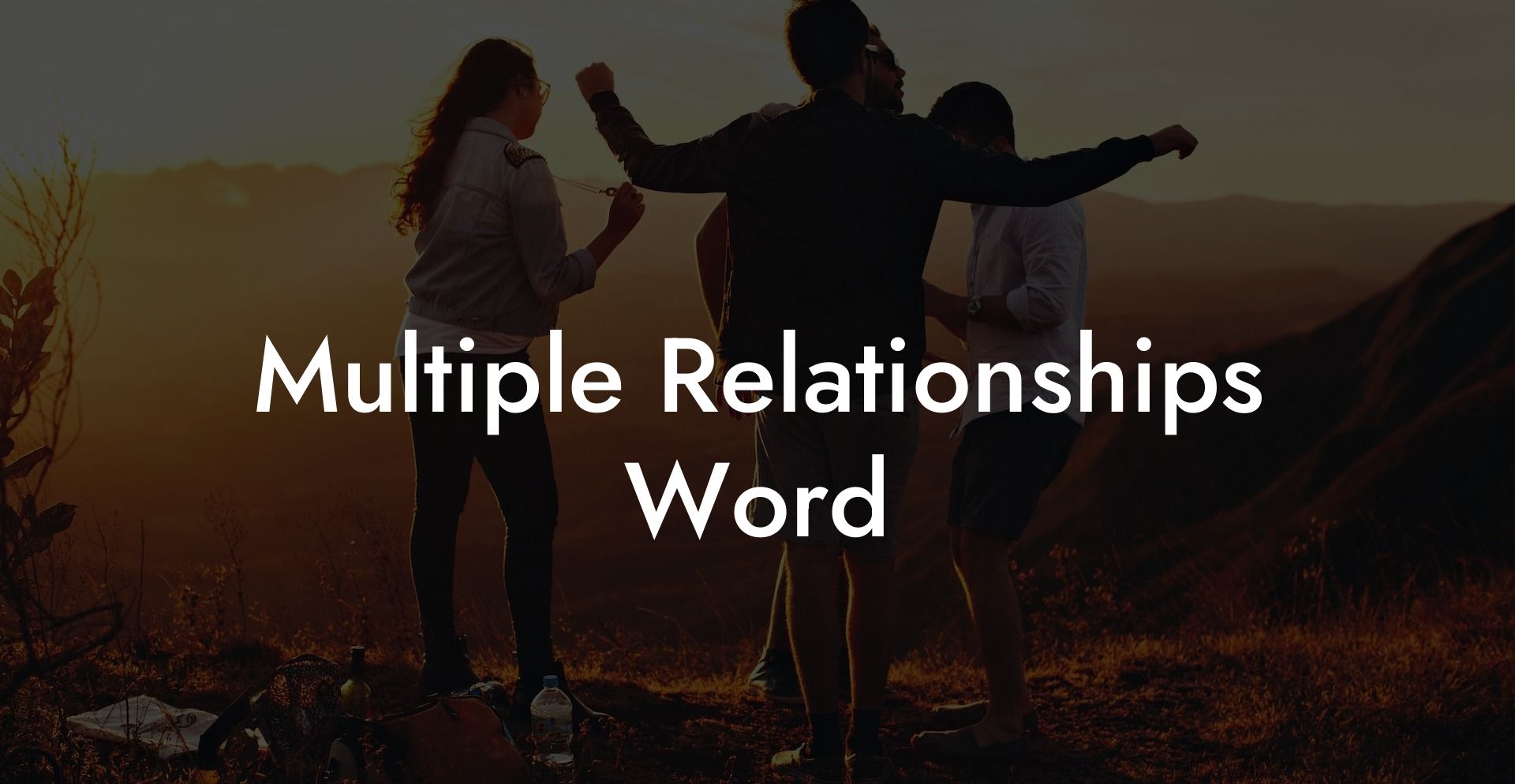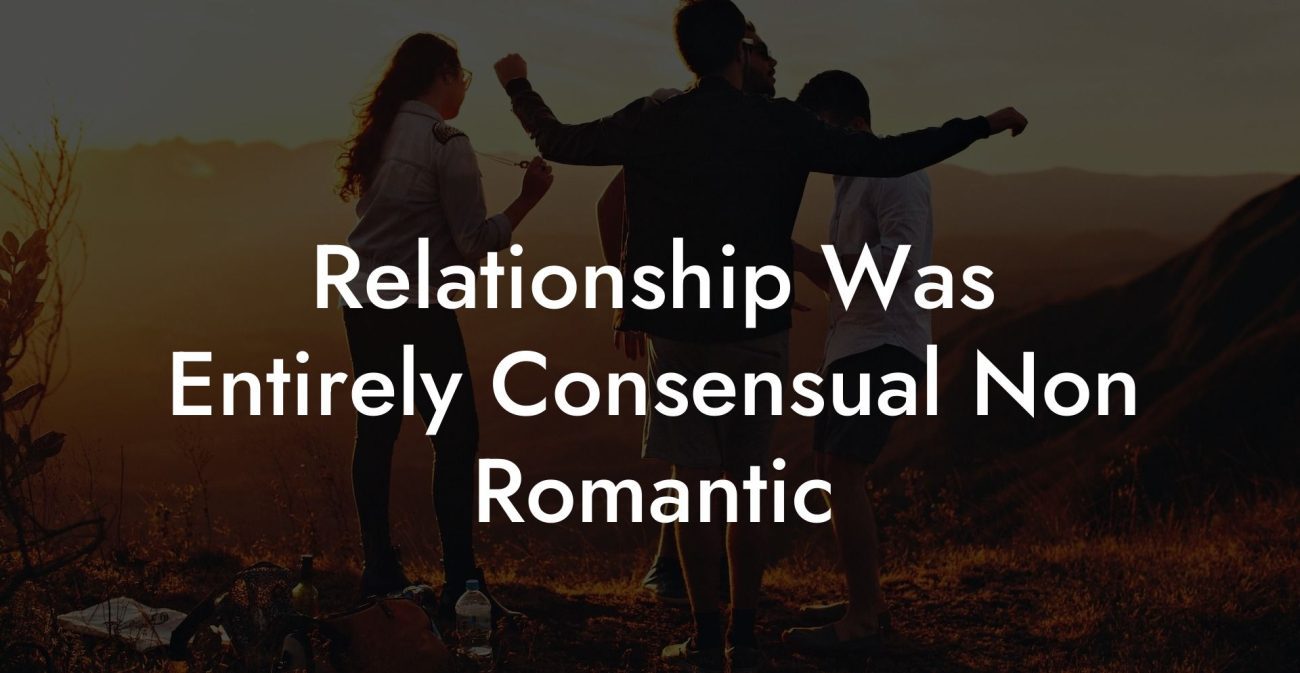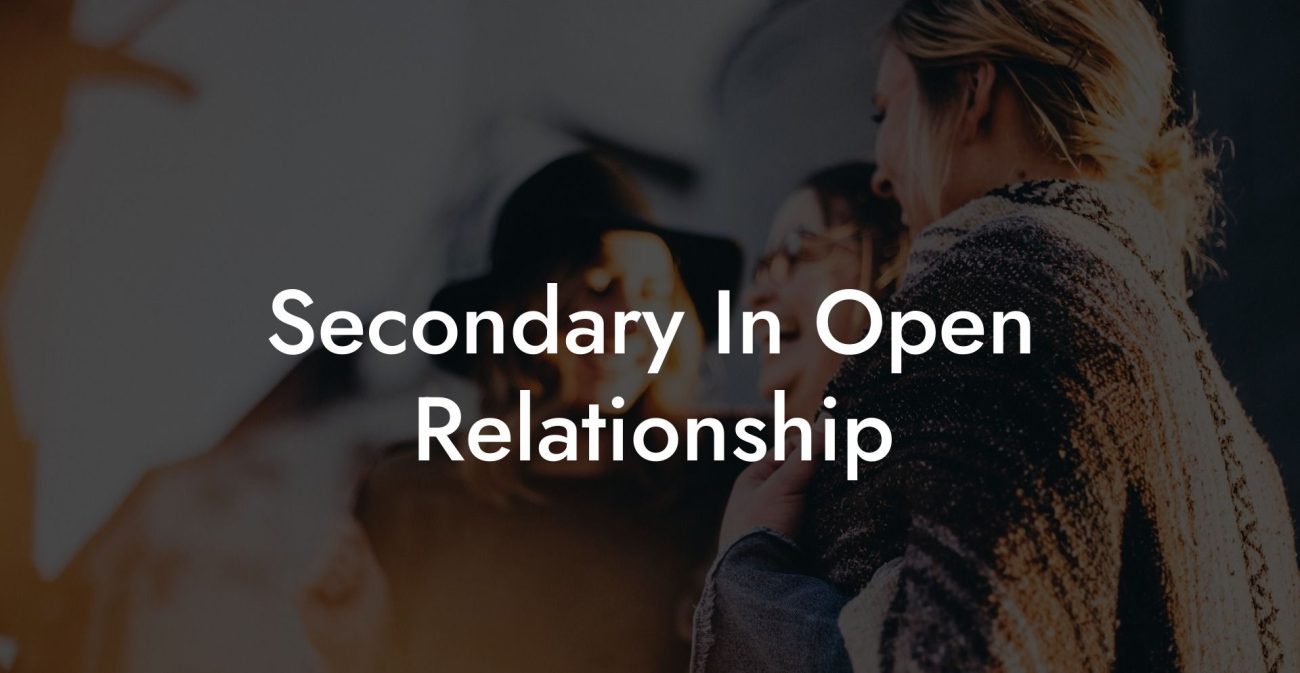In the complex world of relationships, finding a balance between love, commitment, and freedom can be challenging for many people. Multiple relationships, or having more than one romantic or sexual partner, is a practice that is gaining popularity as people explore different ways of experiencing love and connection. In this guide, we will delve into the nuances of multiple relationships and discuss why they may be more common than you think, the benefits and challenges they present, and how to navigate them successfully.
Multiple Relationships Word Table of Contents
Understanding Multiple Relationships
Multiple relationships, also referred to as non-monogamy or polyamory, are situations where individuals have romantic or sexual relationships with multiple people simultaneously. This practice can come in various forms, such as open relationships where partners agree to engage in romantic or sexual connections with others, polyamorous relationships that involve more than two people, and swinging, where couples engage in recreational sex with other people.
While many people might view non-monogamous relationships as unconventional or taboo, the practice has been a part of human history for centuries. In recent years, multiple relationships have surfaced in mainstream discussions and are becoming more accepted in society.
Benefits of Multiple Relationships
Multiple relationships have numerous potential benefits, including:
- Emotional fulfillment: Having multiple partners allows individuals to experience different forms of love and emotional connection, providing a more comprehensive range of emotional fulfillment.
- Increased sexual satisfaction: Engaging in romantic or sexual connections with multiple partners can lead to an enhanced sexual experience and satisfaction.
- Personal growth: Navigating multiple relationships can foster communication skills, self-awareness, and emotional intelligence as individuals learn to manage their own emotions and those of their partners.
- Expanded social circle: Being involved in multiple relationships can lead to the formation of new friendships and social connections, enriching an individual's life experience.
Challenges of Multiple Relationships
Despite their potential benefits, multiple relationships can present various challenges, such as:
- Jealousy and insecurity: Managing feelings of jealousy and insecurity is a common obstacle in multiple relationships, as it can be difficult to share a partner with others.
- Time management: Balancing the needs and desires of multiple partners can require a significant investment of time and energy, which can lead to stress and burnout.
- Negative social stigma: As multiple relationships are still seen as unconventional to some, individuals involved in such relationships may face judgment or criticism from others.
- Risk of sexually transmitted infections (STIs): Engaging in sexual relationships with multiple partners can increase the risk of contracting and transmitting STIs, making regular testing and open communication about sexual health essential.
Navigating Multiple Relationships Successfully
In order to maintain healthy and successful multiple relationships, consider the following tips:
- Establish open communication: Honest and regular communication with all partners is crucial for managing emotions, expectations, and boundaries.
- Identify and honor boundaries: Each person in a multiple relationship should clearly define their individual boundaries and respect the boundaries of others.
- Embrace personal growth: Be open to learning more about yourself and your partners as you navigate the complexities of multiple relationships.
- Practice safe sex: Prioritize sexual health by using protection, getting regular STI testing, and discussing sexual history with your partners.
- Build a supportive community: Surround yourself with friends, family, and a community of people who understand and support your multiple relationships.
Multiple Relationships Word Example:
Imagine a woman named Lisa who is in a committed relationship with two partners. She and her husband, James, have been married for five years, and they have a girlfriend named Sarah, who has been part of their relationship for two years. They all live together in a harmonious and loving home, with each partner contributing their strengths and offering support to one another.
Each partner in this triad prioritizes open communication, regularly checking in with each other about their feelings and discussing any concerns or boundaries. They practice safe sex and are all aware of each other's sexual health. They also all have separate social circles, which allows them to maintain their own individual friendships and connections outside of their triad.
Exploring multiple relationships can be an enriching and fulfilling experience that challenges social norms and encourages personal growth. As we continue to redefine our understanding of love and commitment, it's essential to be open-minded and supportive of the various ways people choose to engage in relationships. If you found this guide insightful, please share it with others and continue exploring The Monogamy Experiment for more resources on non-monogamy, monogamy, and polyamory.













